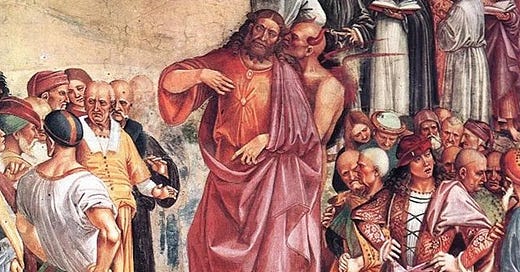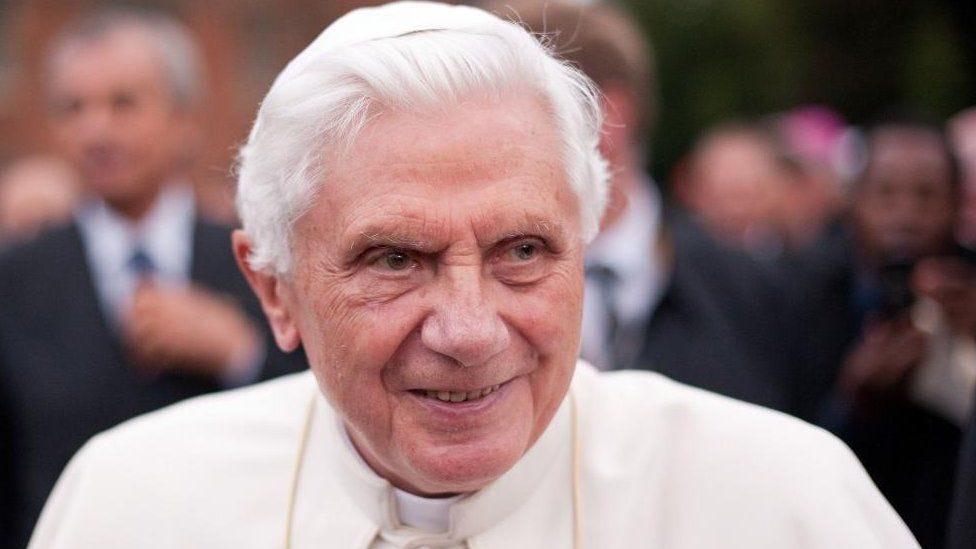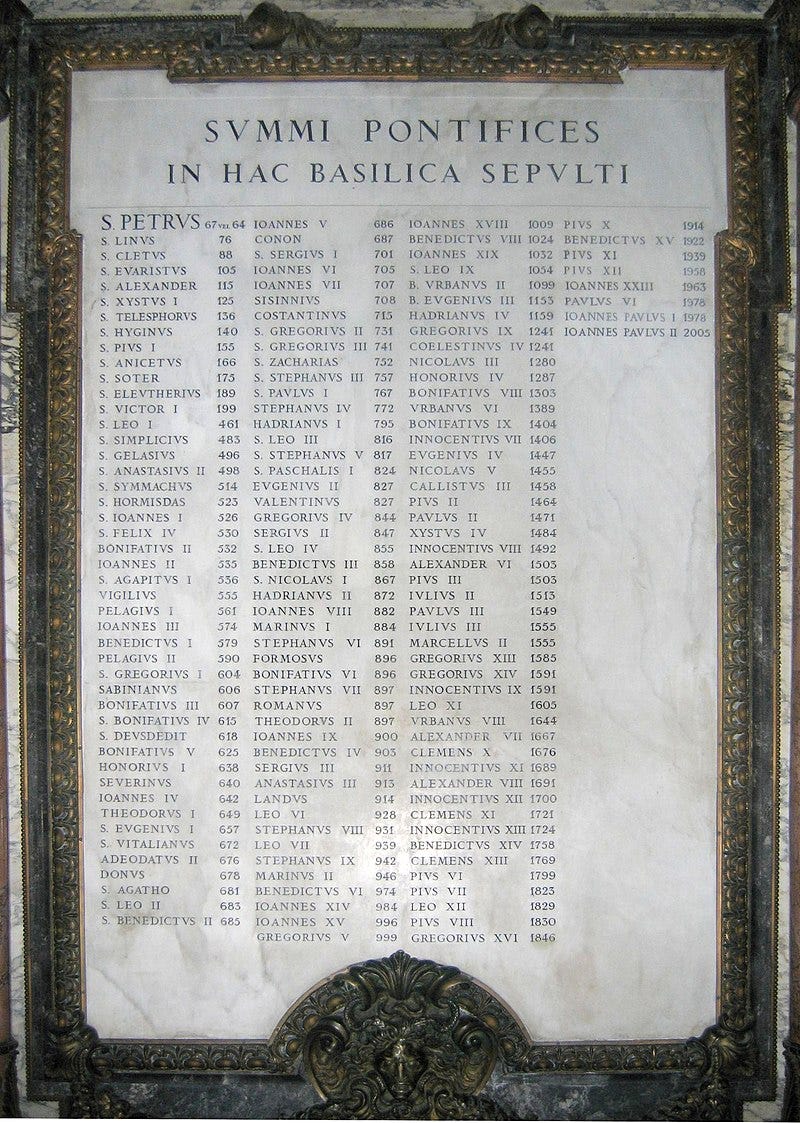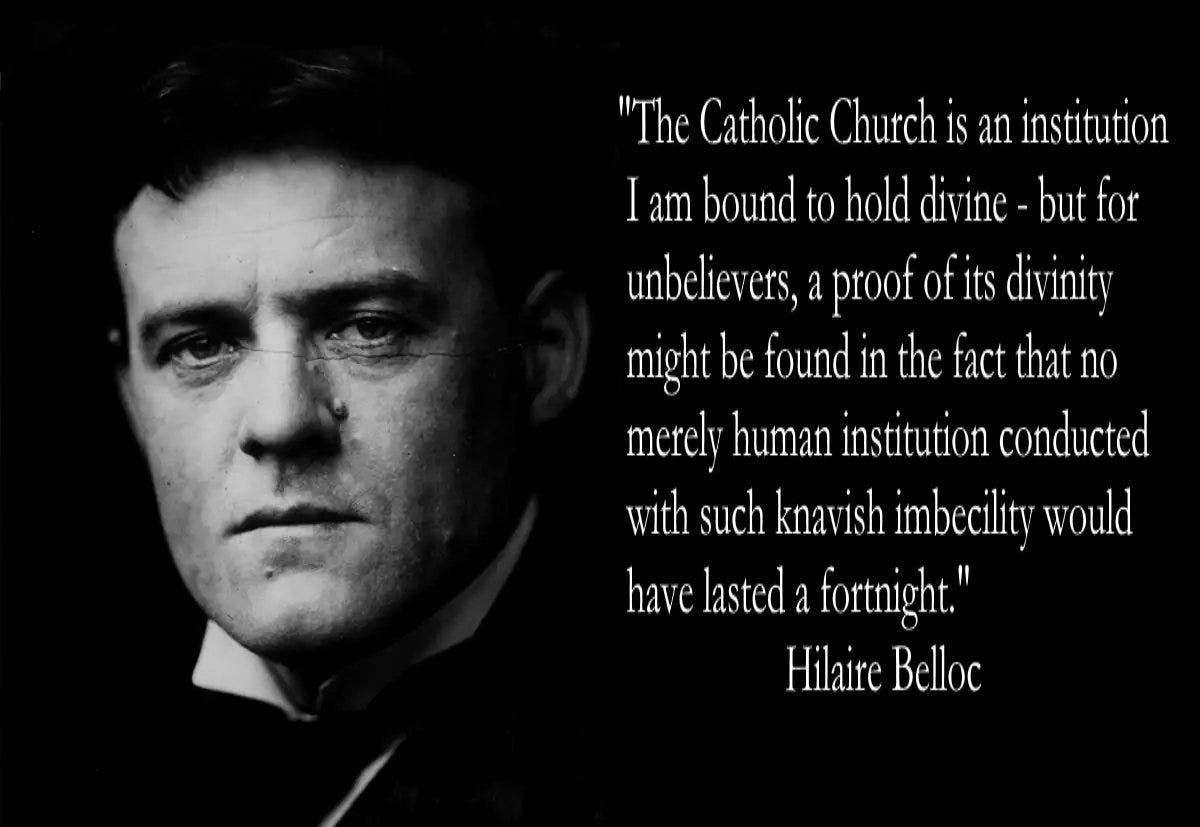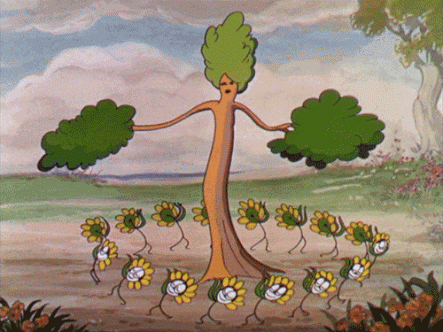Of course you’ve heard the news that Pope Benedict the XVI has passed away. We should all say a prayer for him, and rest easy, knowing he’s praying for us.
He was pope emeritus for longer than he served directly as pope. This put Pope Francis in a kind of awkward position for nearly a decade, with people irresponsibly1 throwing around terms like “anti-pope.”
Interestingly, today’s reading from the First Letter of John mentions the anti-Christ, so I’m sure the conspiracy theorists will have fun with that one.
We should pray for them, as well.
Reading I
1 Jn 2:18-21
Children, it is the last hour; and just as you heard that the antichrist was coming, so now many antichrists have appeared. Thus we know this is the last hour. They went out from us, but they were not really of our number; if they had been, they would have remained with us. Their desertion shows that none of them was of our number. But you have the anointing that comes from the Holy One, and you all have knowledge. I write to you not because you do not know the truth but because you do, and because every lie is alien to the truth.
“Antichrist” is one of those words that’s can mean a couple of different things, when you look at the text in the original language. In Matthew and Mark,2 it means what we tend to think of: a false messiah.
But in John’s epistle, he’s talking about an adversary to Christ, someone whose teachings contradict Jesus. Certainly people claimed to be Christians, but then left the community of believers to teach their own thing. John’s saying that you know their teaching is false because they left the faith.
John is writing in the first century, but his words hold even more true today. The anointing that comes from Jesus has been passed down not just from the apostles to their disciples (which John is referring to), but down through the centuries to our current pope, bishops, and priests.
This line has gone unbroken for almost 2,000 years. We know the names of every single pope, which is kind of weird, when you consider it was an underground cult for the first couple of centuries. The Catholic Church is the longest-lasting, continuous organization in the history of the world, and it’s not even close.3
Responsorial Psalm
96:1-2, 11-12, 13
R. Let the heavens be glad and the earth rejoice!
Sing to the LORD a new song;
sing to the LORD, all you lands.
Sing to the LORD; bless his name;
announce his salvation, day after day.
R. Let the heavens be glad and the earth rejoice!
Let the heavens be glad and the earth rejoice;
let the sea and what fills it resound;
let the plains be joyful and all that is in them!
Then shall all the trees of the forest exult before the LORD.
R. Let the heavens be glad and the earth rejoice!
The LORD comes,
he comes to rule the earth.
He shall rule the world with justice
and the peoples with his constancy.
R. Let the heavens be glad and the earth rejoice!
Don’t forget, it’s still Christmas! Everyone should sing God’s praise, even inanimate objects like the sea, the plains, and the trees.
Alleluia
Jn 1:14a, 12a
R. Alleluia, alleluia.
The Word of God became flesh and dwelt among us.
To those who accepted him
he gave power to become the children of God.
R. Alleluia, alleluia.
To be clear, “flesh” is again one of those words that isn’t exactly easy to translate from the original Greek. Here, it means “a whole person.” Right at the start of his Gospel, John is explaining that Jesus is both True Man and True God.
Gospel
Jn 1:1-18
In the beginning was the Word, and the Word was with God, and the Word was God. He was in the beginning with God. All things came to be through him, and without him nothing came to be. What came to be through him was life, and this life was the light of the human race; the light shines in the darkness, and the darkness has not overcome it.
A man named John was sent from God. He came for testimony, to testify to the light, so that all might believe through him. He was not the light, but came to testify to the light. The true light, which enlightens everyone, was coming into the world.
He was in the world, and the world came to be through him, but the world did not know him. He came to what was his own, but his own people did not accept him.
But to those who did accept him he gave power to become children of God, to those who believe in his name, who were born not by natural generation nor by human choice nor by a man’s decision but of God.
And the Word became flesh and made his dwelling among us, and we saw his glory, the glory as of the Father’s only-begotten Son, full of grace and truth.
John testified to him and cried out, saying, “This was he of whom I said, ‘The one who is coming after me ranks ahead of me because he existed before me.’” From his fullness we have all received, grace in place of grace, because while the law was given through Moses, grace and truth came through Jesus Christ. No one has ever seen God. The only-begotten Son, God, who is at the Father’s side, has revealed him.
My first semester of grad school, I had three different professors who had three very different views of screenwriting. One professors told us that Hollywood is desperate for good scripts, and if you write one, producers and agents would come find you. Another professor said that it doesn’t matter how good your script is, if you don’t have connections in Hollywood, no one will make it. The third professor was like, “Hey, man, I’m not gonna tell you what a writer is. Maybe you don’t even want to call yourself a writer, that’s cool.”
Sometimes, reading the various gospels reminds me of that. Matthew starts by laying out Jesus’ genealogy; Luke gives us the historical/political context of the time.
And then there’s John, who begins with poetry.
In the beginning was the Word, and the Word was with God, and the Word was God.
We’ve heard it a million times, so it doesn’t exactly sound weird to us anymore. But try and parse that sentence. The Word was with God and was God? At the same time?
Yes. But also, huh?
And in between verses, John the Apostles/Evengalist tells the story John the Baptist, which is extra confusing.
All that being said, this is one of those cases where a line-by-line exegesis would ruin the experience. This is the type of passage that’s meant to be read aloud, by a passionate preacher to an engaged audience. An early morning Saturday mass probably isn’t the place to really get the emotional content John is going for here.
Still, anytime you pick up the Bible isn’t time wasted. Read it, and let the words wash over you, then spend some silent time with God. Analysis won’t help much here.
And incorrectly.
France has had, like, three republics just in the last 100 years.


